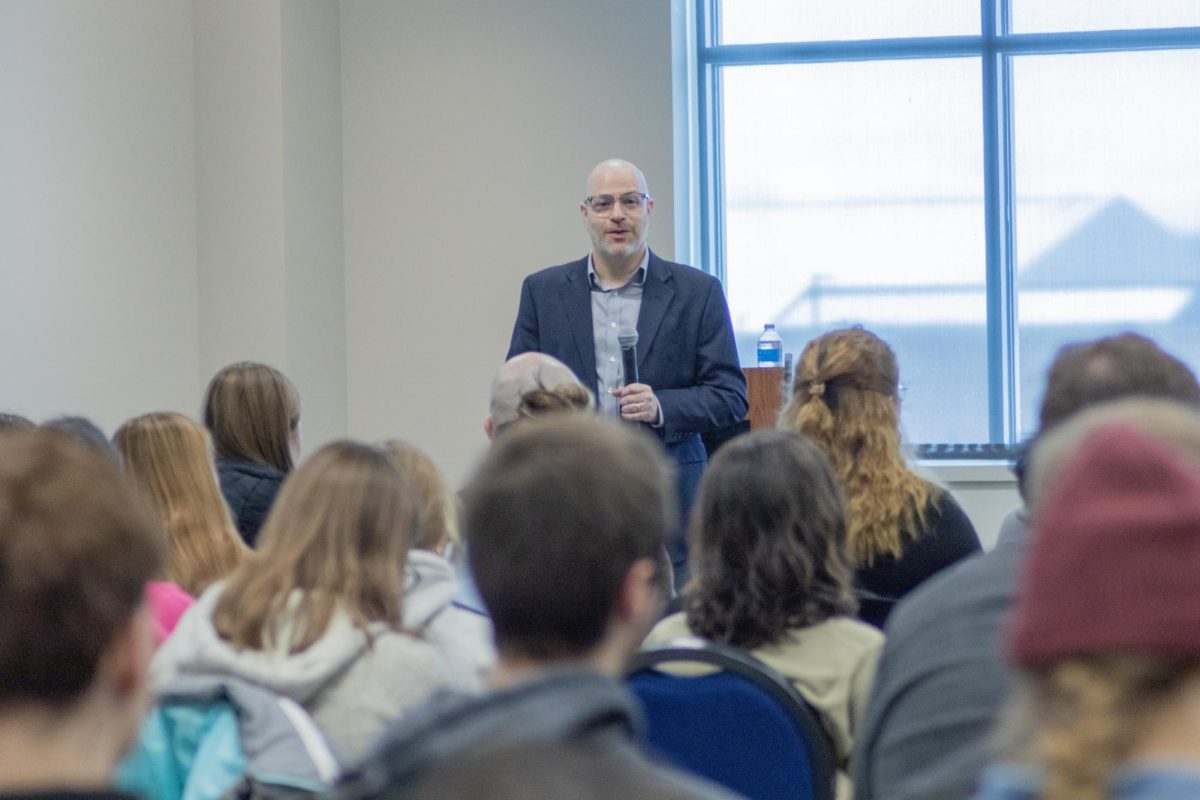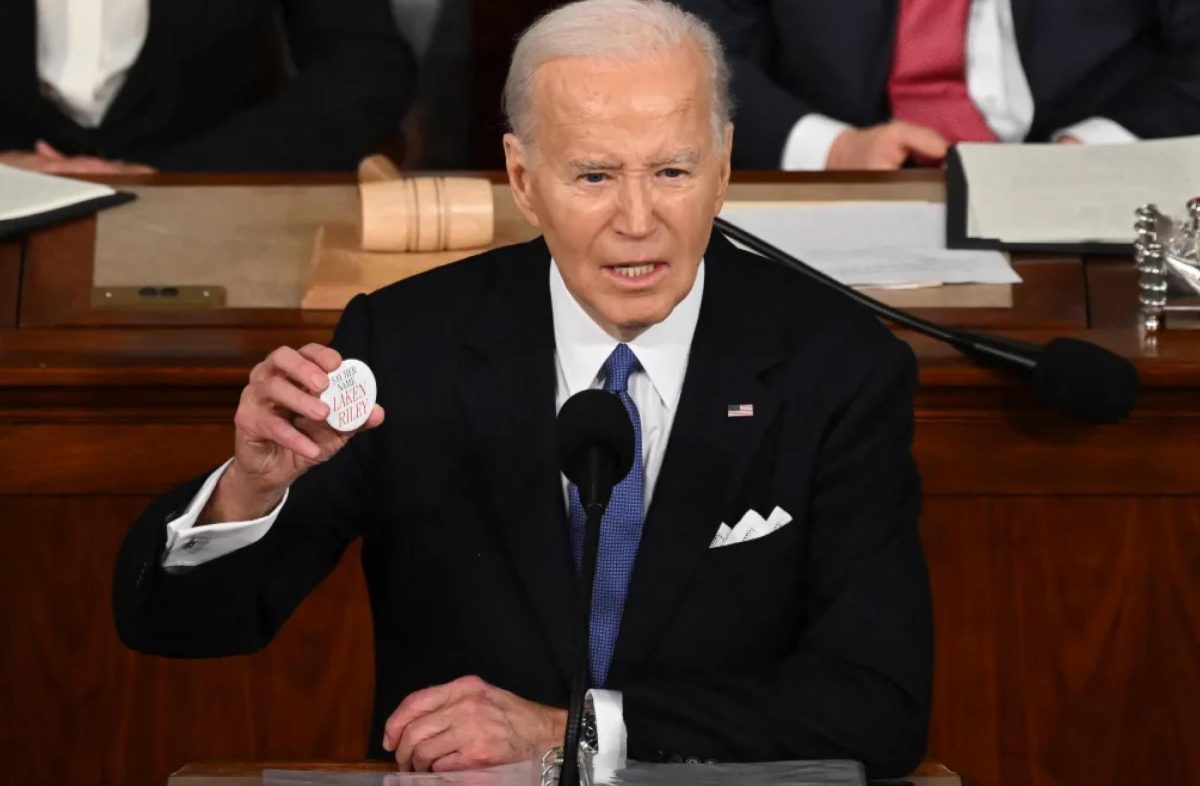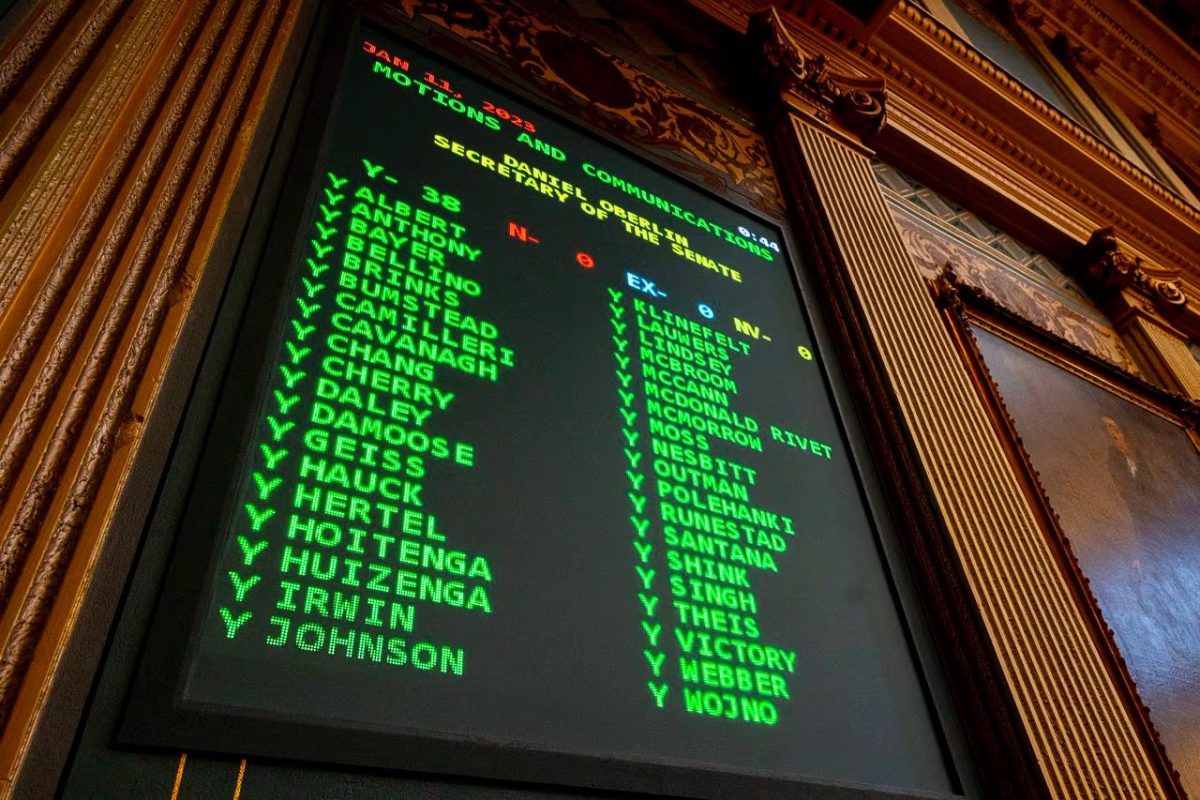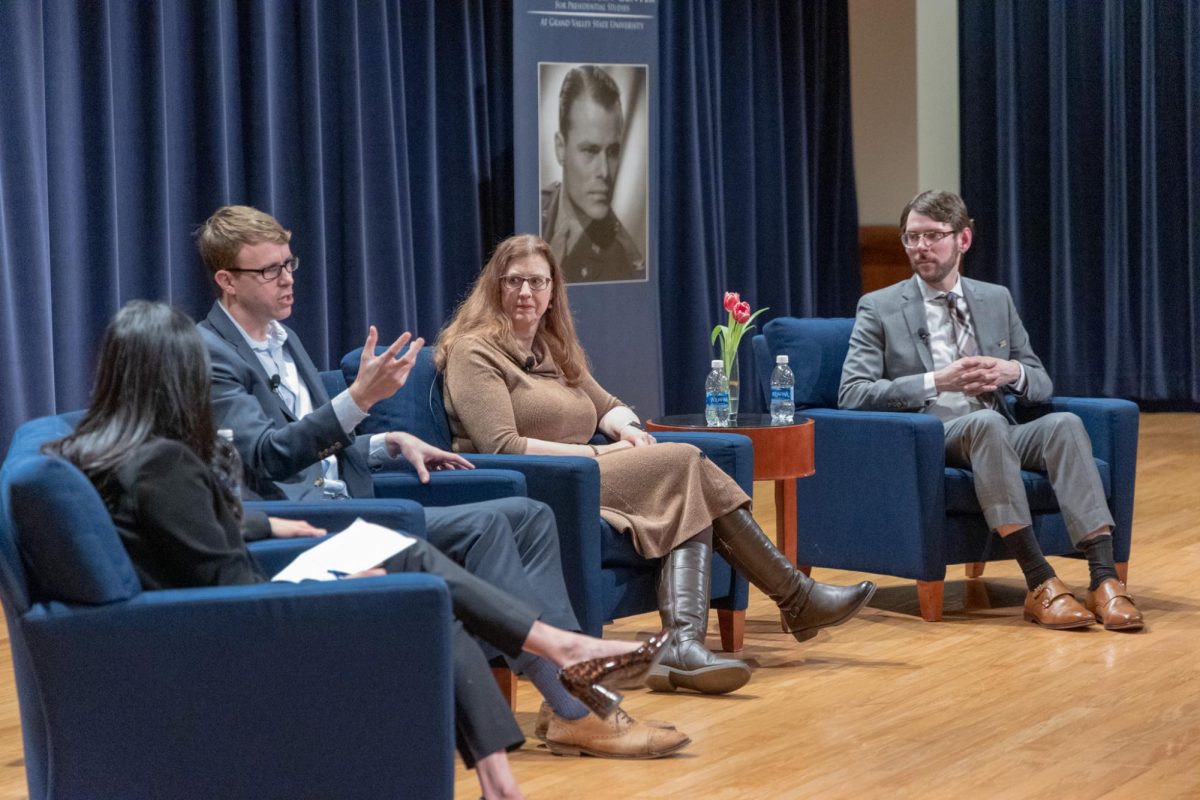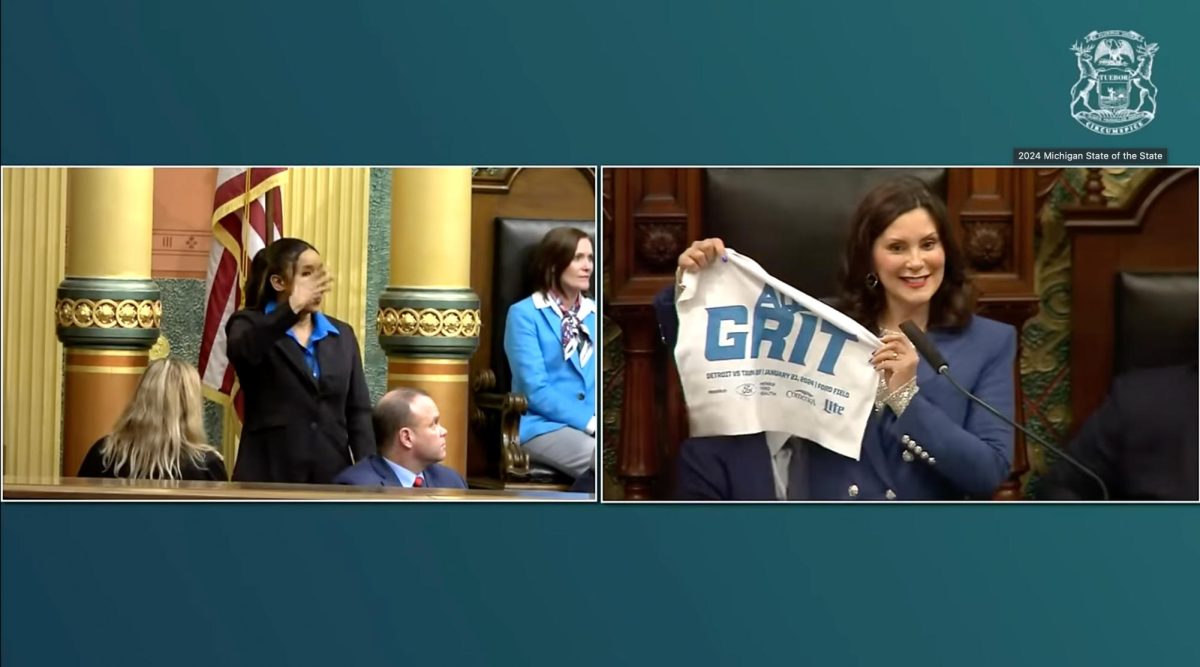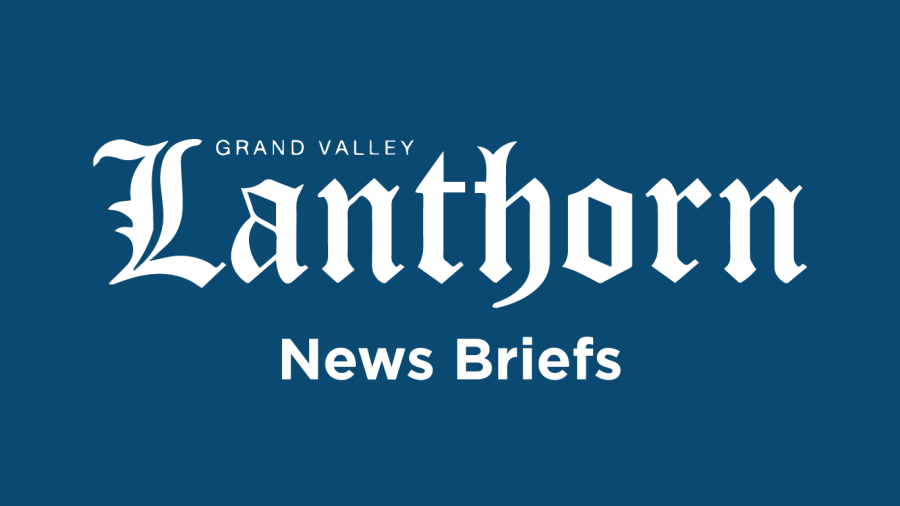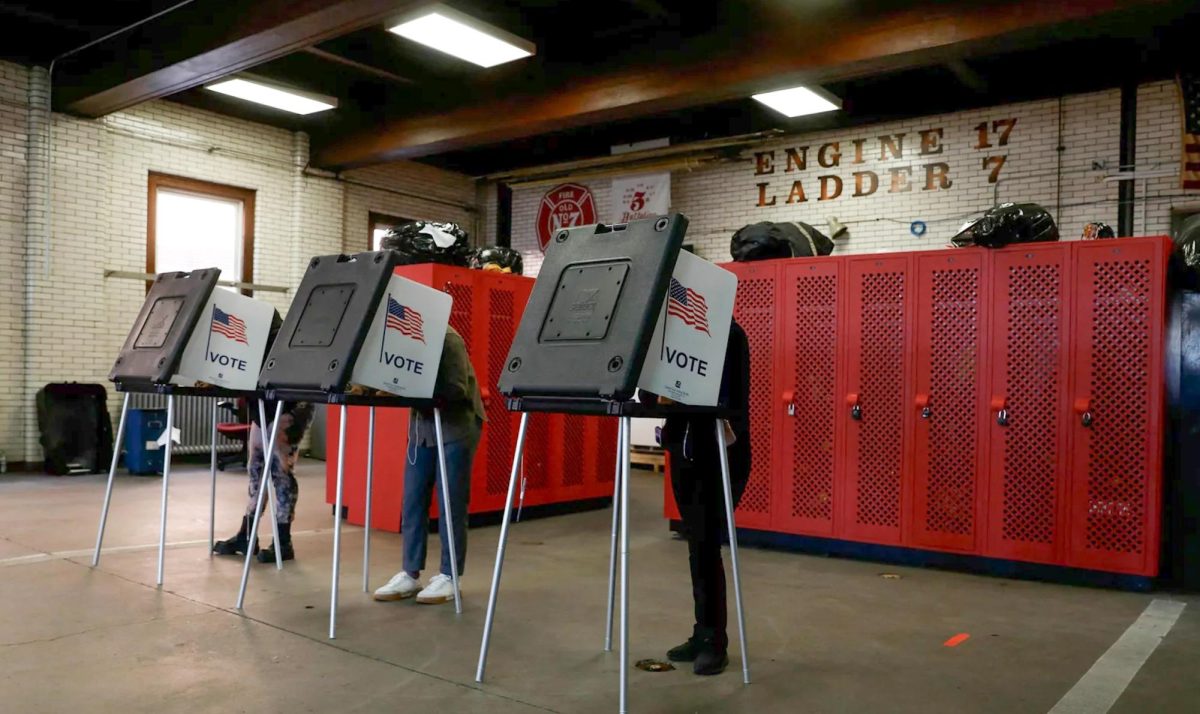The 2024 Michigan Model Arab League (MMAL), a three-day conference that ran from Feb. 15 to 17, focused on modeling political discourse from leaders in the Middle East. The event was hosted for the last 27 years by Grand Valley State University and was held in the L.V. Eberhard Center on the GVSU Pew Campus.
The Arab League is recognized as the oldest regional political organization globally, is dedicated to resolving disputes through diplomacy and peaceful means, among other objectives. As ongoing international conflicts continue to bring Middle Eastern politics and crisis into focus for many, the MMAL conference is an opportunity for future leaders to gain experience discussing global politics.
“Grand Valley students, along with (students from) six other universities, represent diplomats who then role play different issues affecting the Middle East,” said Chad Lingwood, Ph.D., the coordinator of the conference for GVSU and faculty coordinator of the Middle East Studies Program.
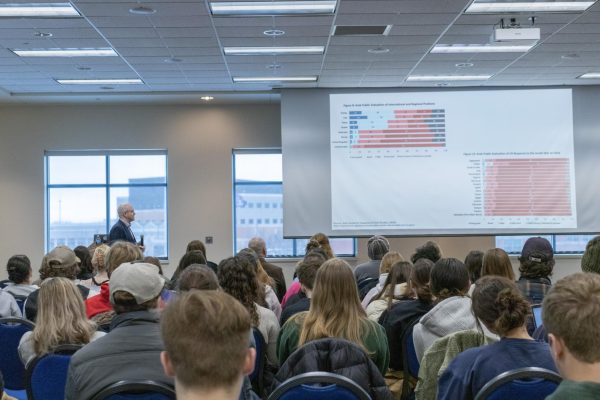
Along with support from GVSU, the program is sponsored by the National Council on U.S.-Arab Relations (NCUSAR). Participating universities included Hope College, Aquinas College, Spring Arbor University, Grand Rapids Community College, Eastern Michigan University and the University of Michigan-Dearborn.
A keynote speaker is invited every year to offer insights and context for the student delegates. Russell Lucas, Ph.D., a professor of international relations and Middle Eastern politics from Michigan State University, gave a lecture focused on how public opinion can (or cannot) provide insights into foreign policy from leaders in the region. His address was called,”Who Cares about Arab Public Opinion?” He discussed how and if Arab leaders care about citizens’ opinions in public affairs.
Acquiring public opinion of current events is a laborious, even dangerous process in the Middle East. Journalists operating in the region endure systematic repressions of media rights, such as Iran’s reaction to the Iranian Women-Life-Freedom Movement. Other examples can be found in Syria, Yemen, Kuwait and Bahrain. Lucas said the lack of research leads to understanding Arab countries as a monolith and not as individual entities.
“Broad generalizations (of public opinion) don’t see the nuances between all sorts of different countries involved,” Lucas said. “What’s the variation? Why are there differences? Where are those differences?”
To help students understand the nuance of politics in Middle Eastern countries, Students from the model panel were assembled into councils, including a Joint Defense Council, a Council on Palestinian and Political Affairs and a Council on Arab Social Affairs. Each council addressed a variety of issues such as illicit arms trafficking, providing care to Palestinian orphans and promoting a global Arabic Studies Program. Other councils in MMAL include a Council on Political Affairs, Council of Arab Environmental Affairs Ministers, Council on Arab Economic Affairs Ministers, a Summit of Arab Heads of State, and an Arab Court of Justice.
Delegates may also serve in officer positions, including Vice Chair, Rapporteur and Parliamentarian. According to the conference’s brochure, these “positions offer exceptional work experience for highly motivated delegates.”
The councils are entirely student run, offering participants of any major the opportunity to develop skills in public speaking, negotiation and advocating policy in the context of issues and interests from a global perspective.
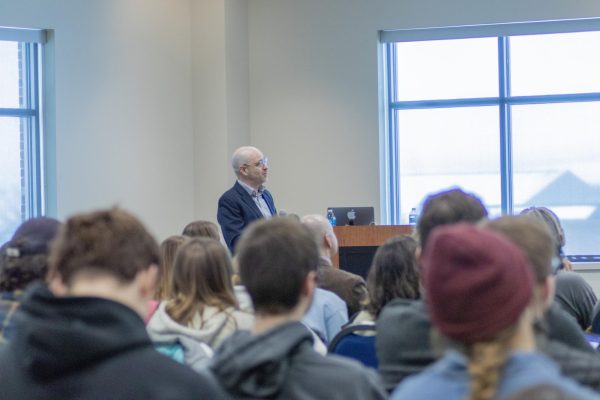
At the event, students in the MMAL brought forth resolutions to be voted on by the various delegations, often composed of multiple students. Following voting, the meeting adjourns to allow delegates to confer and negotiate. The conference also provides discounts for hotel rooms for students needing lodging, so the event is more accessible to students from universities that are further away.
The MMAL and Lucas’ lecture are especially relevant, as foreign intervention in the Middle East and the humanitarian crisis in Gaza have been brought to the forefront of international politics.
“There is no comparable opportunity that allows emerging leaders to learn firsthand what it is like to put themselves in the shoes of real-life Arab diplomats and other foreign affairs practitioners,” according to the NCUSAR’s website.






















